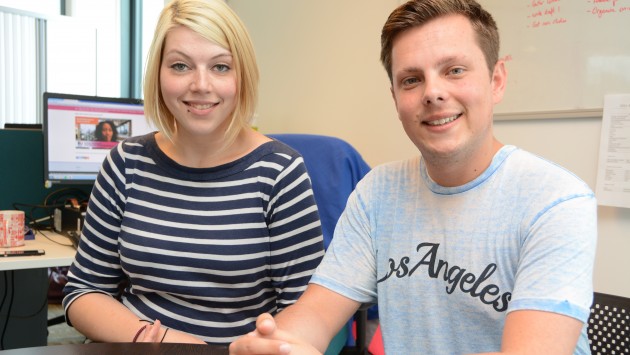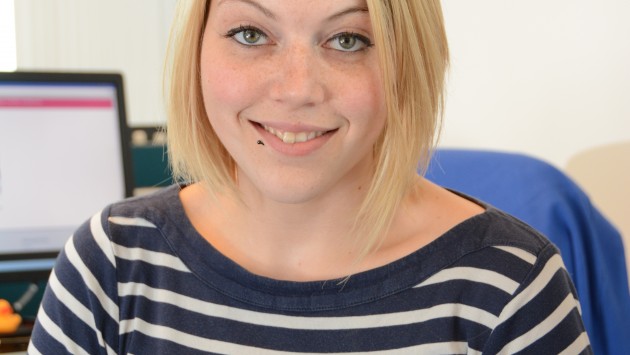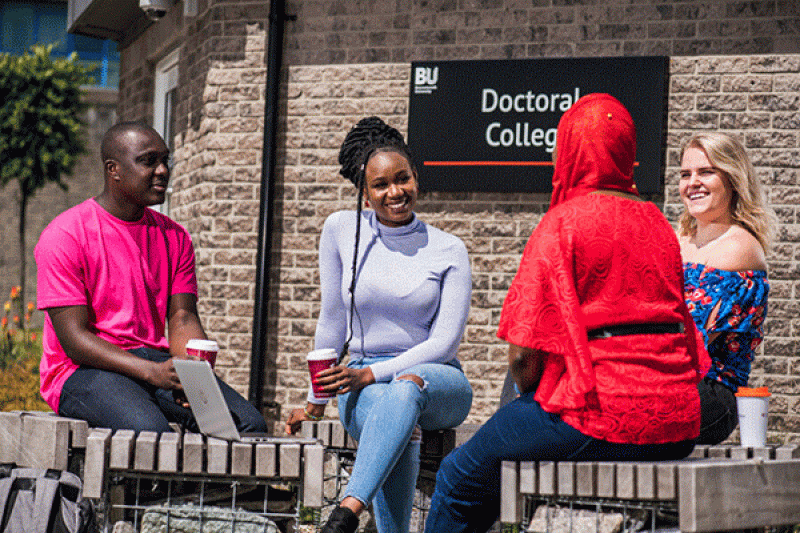SUBU Vice President of Education, Ellie Mayo-Ward says: "At our annual general meeting, we asked students whether they wanted more information about the EU and whether we should take a stance. Students voted in favour of us giving more information about the Referendum – holding talks, and getting students to register to vote, but also to remain politically neutral about it.
"I think that this is a good choice, because, as a Union we need to represent all 18,000 of our members. If we took a stance, one way or another, we would inevitably exclude some people because it’s quite a hot topic, and not everyone has decided whether they want to be in or out. The best thing that we can do is provide information so that students can make their own decision. We don’t want to influence anyone, or exclude anyone, so if we did for example take an ‘in’ stance, and there were students voting out, that might be seen as excluding students or telling them that they are wrong.
"The best thing we can do, for students that are undecided, is provide as much information as possible. In holding the referendum debate, we don’t want to sway students one way or another, but we have a job to provide information.
"The EU referendum, in or out, could mean huge, massive changes to the things we care about. There’s no set way to introduce people to politics, and I think that we need to take this on ourselves, to inform students, to help them make a decision. We need to make sure that students don’t become a big group of apolitical people, who have their lives dictated to by older voters. People know the referendum is happening, they’ve heard about in or out, but they’ve not necessarily realised that they need to register to vote. We need to do as much as we can to make sure that people can get involved as easily as possible.
"We’ve been registering people at an event on campus, where students are being offered ice-cream in return for their registration to vote.
"Personally, I think it’s important that students have the information about all issues concerning the debate. In or out campaigns will both pick a key point that they can hook people in with and focus on. For the ‘in group’, it’s the economy, for the ‘out’ it’s more about immigration. These will both hook people in and get them involved, which is good for getting kind of a shock factor , and getting students to initially recognise an issue with something, but it’s so grey and blurry, so students need as much information from both sides so that they can make an informed decision. If they are voting on headline issues, it’s never a good idea, because there is so much background information behind it that it might not be the right choice for them, even if the headline is there.
"This isn’t a ‘student issue’, it’s an issue for the entire of Britain. It’s not that we need students to do something specifically, but they do need to be kept informed."
SUBU Vice President of Welfare, Reece Pope, says: "We have supported students in holding their own debates, and we helped to hold a balanced debate for students to attend. We’ve also put together a booklet of information for students, offering genuinely unbiased facts, stats and figures, to try and show people what the actual result may be, and that there is still so much that is unknown. I think the biggest thing is making sure that people are registered to vote and registered to vote in the right place. I think the timing of this referendum is important, given that the timing is so close to when students are moving back home. Students may not take this into consideration, and register to vote here and not back home, so that’s a big message at the moment. Also, we are trying to explain to people that it doesn’t matter so much which way you vote, but more that you know what you’re voting for.
"I definitely think that if you still haven’t decided, this doesn’t mean that you shouldn’t register to vote. A lot of people believe: “I’m not ready to decide, so I shouldn’t register.” Register and even if you don’t know right up until the day, you still have the opportunity. The assumption is that students are apolitical and don’t care about politics. The truth is that students care about the issues that surround the EU Referendum – even if you don’t buy into a particular party, you’re voting for what you believe in. The general life that you live will be affected by this, it’s not something that’s happening in party politics. This will affect you.
"Both sides, even if they’re focusing on a big issue that is topical, they seem to talk in an abstract way that’s not relative to an individual. I think they talk about how the result will affect the country rather than an individual. Students are just humans, and humans think about themselves first. There are plenty of messages that could be used, but aren’t, because they aren’t seen as the big issues, even if they are things that people care about.
"It’s about galvanising students to care about something, as opposed to swaying one way or another. We as a Union should be encouraging students to vote whichever way they want to."






